Dominic Casciani
Home and Legal Correspondent•@BBCDomC

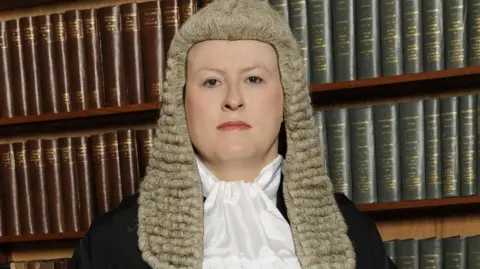 Avalon
Avalon
Victoria McCloud, pictured in 2010 when she was sworn in as a Queen's Bench Master, stood down from High Court work last year
The UK's only ever judge to publicly say they are transgender is planning to take the government to the European Court of Human Rights over the Supreme Court's ground-breaking ruling on biological sex.
Dr Victoria McCloud, who stepped down from court last year, said the judgement and equality watchdog's new guidance violated her human rights and she felt "contained and segregated".
She said the court had failed to consider human rights arguments that would have been put by trans people and the judgement had left her with the legal "nonsense" of being "two sexes at once".
Two weeks ago, judges at the Supreme Court unanimously ruled a woman is defined by biological sex under equalities law.
Dr McCloud was one of at least two trans people who had wanted to present arguments to the Supreme Court about how its outcome would affect them.
Courts have the discretion to consider arguments from outside "interveners" - but judges often reject such interventions if they conclude they are going to hear all the relevant arguments from others.
The Supreme Court considered arguments on trans issues from the human rights campaign group Amnesty International, but not from exclusively trans activists.
Dr McCloud, 55, came out as trans in her twenties and is one of about 8,000 people to have legally changed the sex on their birth certificate.
She went on to be a High Court Master - judges who often manage complex, expensive cases - and was publicly promoted as a symbol of the modern judiciary's diversity.
She stood down a year ago, saying she could not continue her judicial work amid an increasingly difficult public debate that had led to her being singled out for abuse and criticism.
Following the Supreme Court ruling, Prime Minister Sir Keir Starmer said it had given "much-needed clarity" for those drawing up guidance.
But Dr McCloud said that far from clarifying the law, the court had not considered how such an outcome would impact the lives of trans people.

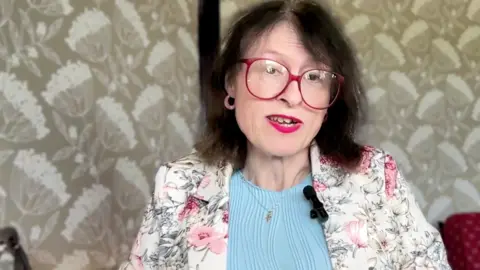
Dr Victoria McCloud speaking to the BBC over a video link on Monday
"Trans people were wholly excluded from this court case," said Dr McCloud. "I applied to be heard. Two of us did. We were refused.
"[The court] heard no material going to the question of the proportionality and the impact on trans people. It didn't hear evidence from us.
"The Supreme Court failed in my view, adequately, to think about human rights points."
Dr McCloud says she and other campaigners will go to the European Court of Human Rights in Strasbourg to seek a declaration that the actions of the UK government and Supreme Court judgement "violate [her] fundamental human rights".
"Just as the prime minister didn't know what a woman was, actually the Supreme Court don't know because they haven't defined biological sex," said the former judge.
"The answer [in my view] is that a woman in law is someone with the letter F on her birth certificate."
Dr McCloud has a Gender Recognition Certificate - which means her acquired female gender is recorded on her birth certificate. At the same time, the Supreme Court ruling means she is defined as a man for the purposes of the Equality Act.
In its judgement, the court said biological sex refers to "the sex of a person at birth". It emphasises that only women can be pregnant, for example, and women have specific legal protection during pregnancy.
Trans campaigners argue the court did not take into account their view of the complexities of biology. They argue it is impossible for services - from police officers performing a strip search through to restaurants - to truly specify someone's biology, pointing to intersex cases as an example of where biological sex is not binary.
However, gender-critical campaigners say biology comes down to a common-sense assessment of what makes a man or a woman.

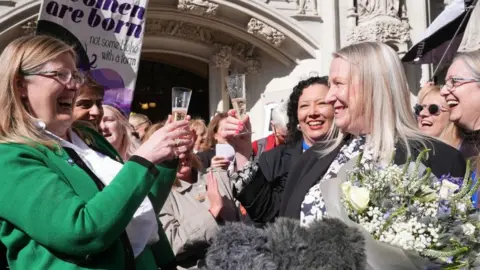 PA Media
PA Media
Campaigners from For Women Scotland celebrate the Supreme Court's judgement earlier this month
"[This judgement] has left me two sexes at once, which is a nonsense and ironic, because the Supreme Court said that sex was binary," said Dr McCloud.
"I am a woman for all purposes in law, but [now under this judgement] I'm a man for the Equality Act 2010. So I have to probably guess on any given occasion which sex I am."
The equalities watchdog's interim guidance says trans women should not be permitted to use women's facilities. It also means trans men - women who have transitioned to being men - have to use women's spaces.
The guidance states that "in some circumstances the law also allows trans women (biological men) not to be permitted to use the men's facilities, and trans men (biological women) not to be permitted to use the women's facilities".
For example, trans men could be excluded from women's facilities "where reasonable objection is taken to their presence, for example because the gender reassignment process has given them a masculine appearance", the watchdog told the BBC.
The guidance adds: "Where facilities are available to both men and women, trans people should not be put in a position where there are no facilities for them to use."
Dr McCloud believes dangerous predators could exploit this confusion to further target women.
"This is going to make matters much, much more dangerous," she said. "I am now expected to use male spaces.
"I have female anatomy. It isn't safe for women to use the men's loos. It is as simple as that."
Campaigners including For Women Scotland - the group that brought the case to the Supreme Court - say women felt unsafe with trans women using female facilities.
Dr McCloud continued: "The approach here is really to treat normal people like me, who just happened to change legal sex decades ago, people who've served their country, worked in the military, doctors, lawyers, nurses, just ordinary, hard-working, peaceable people, as if we're a threat to be contained and segregated."
.png)
 7 months ago
24
7 months ago
24

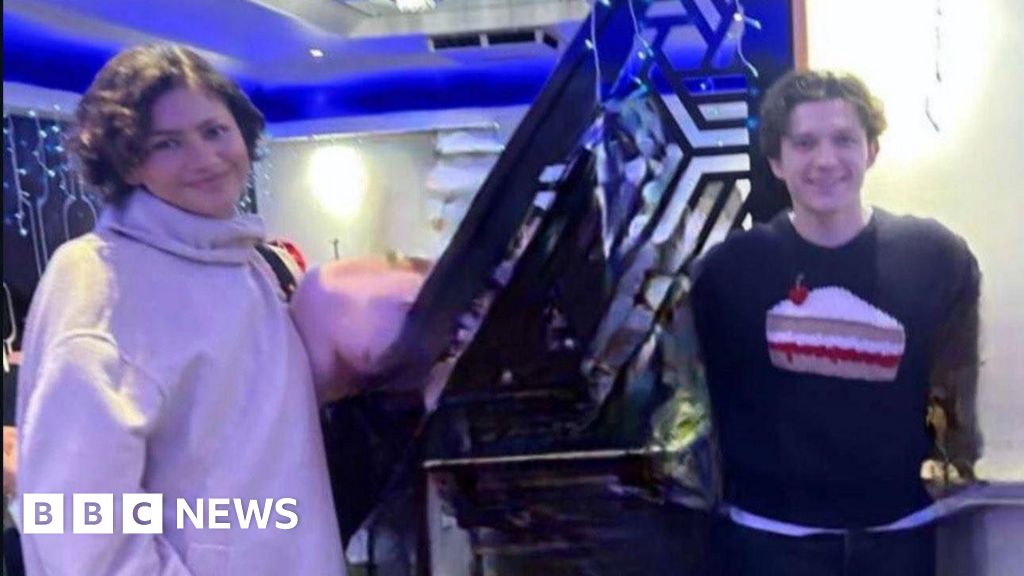
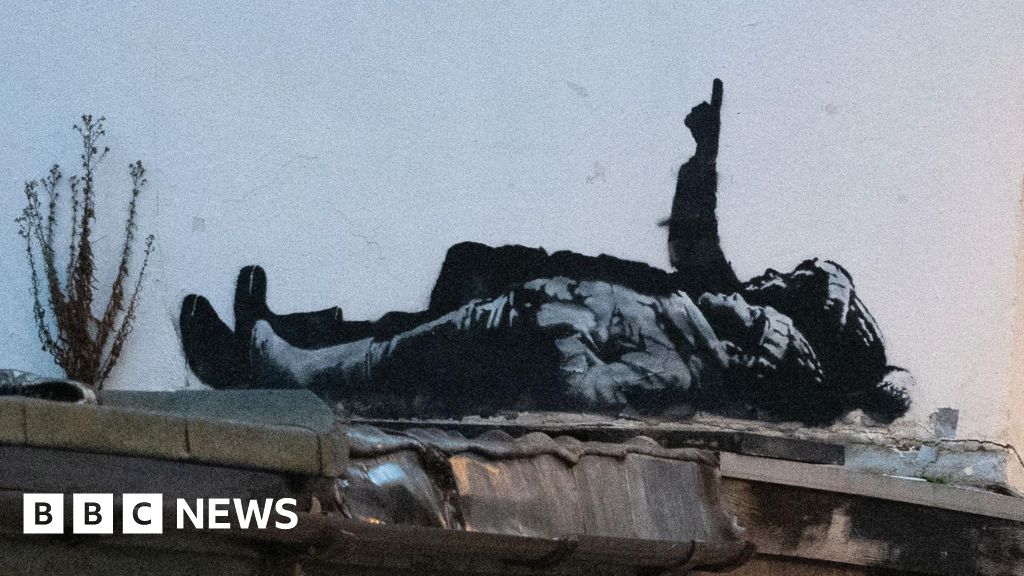





 English (US) ·
English (US) ·